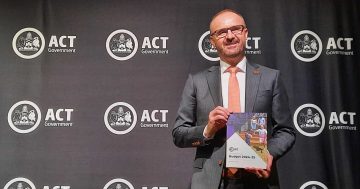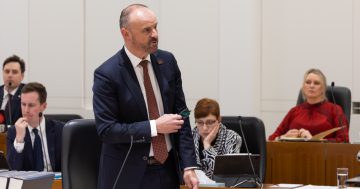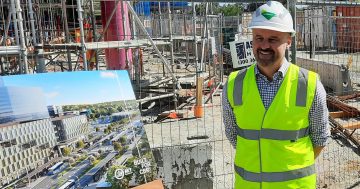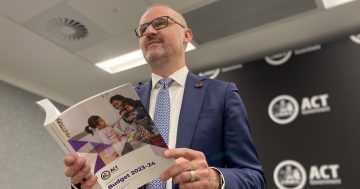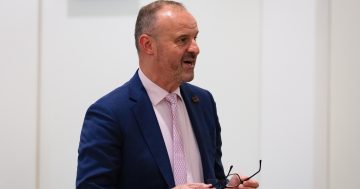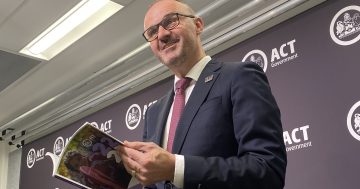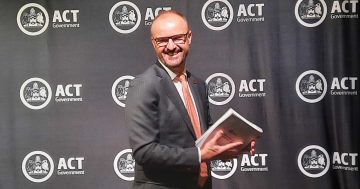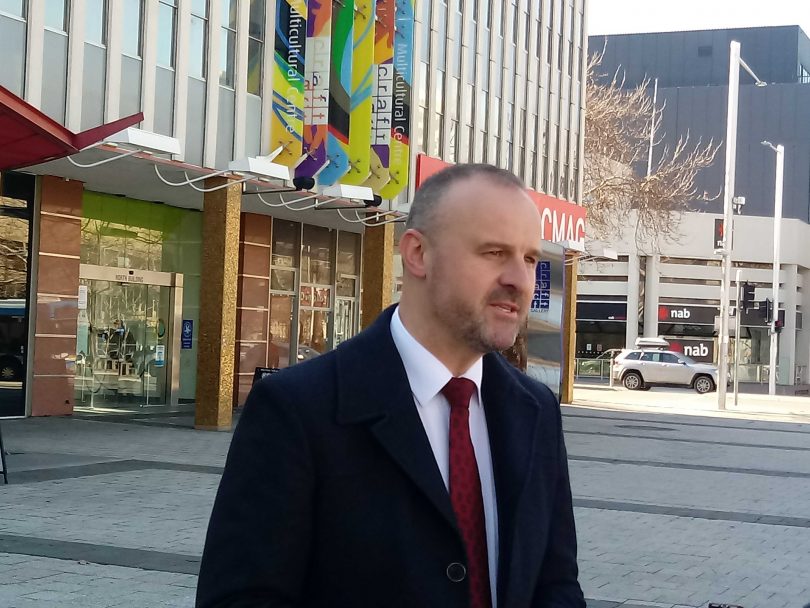
Chief Minister Andrew Barr said more support for the economy was on its way. Photo: Ian Bushnell.
The ACT budget deficit will blow out to hundreds of millions of dollars as a result of COVID-19’s impact on the economy.
Chief Minister and Treasurer Andrew Barr flagged the damage the virus had done to the ACT’s bottom line after Federal Treasurer Josh Frydenberg delivered the Federal Government’s budget update, revealing that the federal deficit had hit almost $86 billion, the worst number since World War II.
Mr Frydenberg said that was expected to explode to more than $184 billion next year, and predicted the unemployment rate would be above 9 per cent by the end of the year.
Net debt is expected to grow beyond $677 billion this financial year, or almost 36 per cent of gross domestic product.
Mr Frydenberg will hand down a delayed budget in October.
The next ACT budget will be delivered after the 17 October election but Mr Barr will provide a budget update in about four weeks.
Mr Barr said not only had the ACT Government spent millions on stimulus measures to support the ACT economy and employment, but its largest source of revenue had also been hit, with $140 million wiped from its share of GST, coming on top of Grants Commission adjustments announced earlier in the year.
He said that the total national GST pool had shrunk by $7 billion, and the ACT’s share was just below 2 per cent.
”Our single largest revenue source has taken quite a haircut and that is expected to remain a challenging situation for every state and territory for the next few years,” he said.
Mr Barr said net debt would continue to rise from the current 7 per cent of state gross product but the ACT’s AAA credit rating remained among the strongest in the nation.
He said there would be more stimulus spending to come, with another round to be announced next month.
”We recognise economic support will need to be ongoing,” Mr Barr said. ”I suspect we will have to provide further stimulus through 2020-21 and 2022 and 2023.”
With job creation high on the list for the Federal Government, Mr Barr hoped that recent Commonwealth infrastructure announcements for the ACT were a sign of more to come.
Mr Barr said the October budget was an opportunity for the Commonwealth to invest more in the ACT and pointed to the AIS Arena and precinct, public transport and public housing as areas where the two governments could work together.
But Mr Barr said the Commonwealth could also invest in its own assets in the ACT, particularly the cultural institutions beyond the Australian War Memorial, which all have worthy expansion projects needing funding.
Mr Barr also called on the Federal Government to rule out cuts to the Australian Public Service in the October budget.
”The absolutely worst thing that they could do for our economy and the broader Canberra region would be to throw people out of work through their budget in October,” he said.
”That will reduce the amount of money flowing through our economy, mean less money spent on small business, and have a downward compounding effect on our economy. We’ll be pressing home that point over coming months.”












